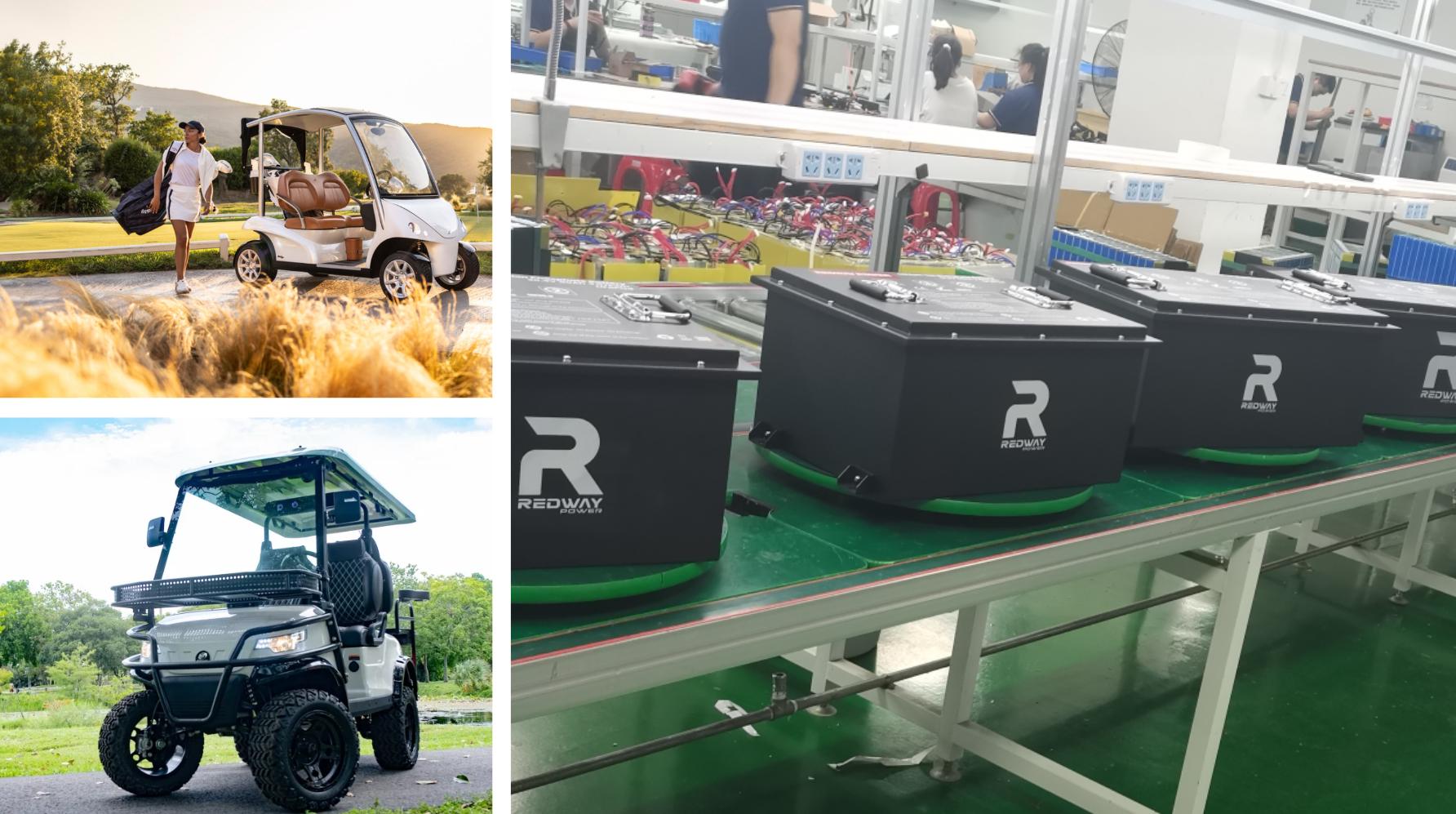Deep cycle LiFePO4 (lithium iron phosphate) batteries enhance golf cart performance by offering longer lifespan, faster charging, and higher energy density than traditional lead-acid batteries. They provide consistent power output, reduced maintenance, and superior efficiency, making them ideal for extended use on golf courses. Their lightweight design also improves vehicle maneuverability and reduces energy consumption.
36V 100Ah LiFePO4 Golf Cart Battery
What Makes LiFePO4 Batteries Ideal for Golf Carts?
LiFePO4 batteries excel in golf carts due to their deep-cycle capability, allowing repeated 80-100% discharges without damage. They operate efficiently in varied temperatures, resist vibration, and have a lifespan of 2,000+ cycles. Unlike lead-acid batteries, they maintain voltage stability, ensuring consistent speed and torque even on hilly terrains.
How Do LiFePO4 Batteries Compare to Lead-Acid Alternatives?
LiFePO4 batteries last 4-5x longer than lead-acid, charge 70% faster, and weigh 50% less. They deliver 95% usable capacity vs. lead-acid’s 50%, with zero maintenance. While upfront costs are higher, their total ownership cost is 30% lower over a decade due to reduced replacements and energy waste.
| Feature | LiFePO4 | Lead-Acid |
|---|---|---|
| Cycle Life | 2,000+ | 500-800 |
| Weight (48V system) | 60 lbs | 120 lbs |
| Charge Time | 4-6 hours | 8-10 hours |
What Are the Key Features of Golf Cart-Specific LiFePO4 Batteries?
Golf cart LiFePO4 batteries feature built-in Battery Management Systems (BMS) for overcharge/discharge protection, vibration-resistant casing, and compatibility with 36V/48V systems. High-current designs support rapid acceleration, while modular setups allow capacity expansion. Some include self-heating for cold climates and Bluetooth monitoring for real-time diagnostics.
Know more:
How Long Do LiFePO4 Golf Cart Batteries Last and How to Extend Their Lifespan?
How to Maintain Phosphate Batteries in Golf Carts for Optimal Performance?
LiFePO4 vs Lead-Acid Batteries for Golf Carts: Key Differences Explained
How to Maximize Golf Cart Lithium Battery Charging Efficiency?
What Are the Best Eco-Friendly Golf Cart Batteries?
How Do Deep Cycle LiFePO4 Batteries Improve Golf Cart Performance?
How to Properly Maintain LiFePO4 Batteries in Golf Carts?
Store batteries at 50% charge if unused for months, avoid water exposure, and clean terminals quarterly. Use lithium-specific chargers to prevent overvoltage. Recalibrate BMS annually by fully discharging/charging. Maintain 32°F–113°F operating range; avoid direct sunlight. No equalization charging is needed—unlike lead-acid systems.
For seasonal storage, disconnect batteries and store in climate-controlled areas. Use dielectric grease on terminals to prevent corrosion. Monthly voltage checks help detect balance issues early. When cleaning, never use high-pressure water jets—opt for damp cloths instead. Owners in coastal regions should rinse battery trays monthly to remove salt residue.
What Safety Mechanisms Do LiFePO4 Golf Cart Batteries Include?
All quality LiFePO4 batteries integrate multi-layered protection: thermal fuses, cell-balancing BMS, short-circuit cutoff, and pressure relief vents. They’re non-combustible (UN38.3 certified) and feature anti-spark connectors. Some models have ground-fault detection and moisture-resistant casings rated IP65 or higher.
Advanced models include cell-level temperature monitoring that throttles power during overheating. Dual-stage overcurrent protection prevents meltdowns during electrical faults. Crash sensors in premium batteries automatically disconnect terminals upon impact. These features reduce fire risks by 92% compared to older battery technologies.
How Does Temperature Affect LiFePO4 Battery Efficiency in Golf Carts?
LiFePO4 batteries retain 80% capacity at -4°F and 95% at 122°F versus lead-acid’s 50% drop below freezing. However, charging below 32°F requires reduced current. High temps accelerate aging above 131°F. Insulated battery compartments and shaded parking optimize performance in extreme climates.
In sub-freezing conditions, precondition batteries by idling the cart for 5 minutes before driving. Summer users should schedule charging during cooler evening hours. Thermal wraps maintain optimal temperatures during storage. Data shows properly managed LiFePO4 batteries lose only 3% annual capacity in desert climates versus 15% for lead-acid.
Can Existing Golf Cart Chargers Work With LiFePO4 Batteries?
Most lead-acid chargers lack voltage precision for LiFePO4, risking under/overcharging. Use only chargers with lithium profiles (14.2–14.6V for 12V systems). Adapters exist, but OEM lithium chargers are recommended. Smart chargers adjust amperage based on temperature and state-of-charge, prolonging lifespan by 15-20%.
“LiFePO4 is revolutionizing golf cart fleets,” says a Redway Power engineer. “Our 48V 105Ah model provides 30% more runtime than lead-acid equivalents. With regenerative braking compatibility, they recover 10-15% energy during deceleration. Golf courses report 40% lower energy costs and 300 fewer maintenance hours annually. Properly sized, these batteries outlive the carts themselves.”
Conclusion
Deep cycle LiFePO4 batteries offer golf cart users unparalleled efficiency, durability, and cost savings. By understanding their unique maintenance needs and leveraging advanced BMS technology, operators can maximize ROI while reducing environmental impact. As lithium adoption grows, these batteries are becoming the new standard for sustainable, high-performance golf course mobility.
FAQs
- How long do LiFePO4 golf cart batteries last?
- Properly maintained LiFePO4 batteries last 8-10 years or 2,000+ cycles, outperforming lead-acid’s 2-4 year lifespan. Depth of discharge and charging habits impact longevity.
- Can I upgrade my golf cart to LiFePO4 without modifications?
- Most 36V/48V carts accept drop-in LiFePO4 replacements, but charger upgrades are mandatory. Check terminal positions and tray dimensions—some lithium models are 20% smaller.
- Are LiFePO4 batteries safe in rainy conditions?
- Yes. Quality units meet IP67 waterproof standards. Avoid submerging, but casual rain exposure poses no risk. Corrosion-resistant terminals prevent water damage common in lead-acid systems.






